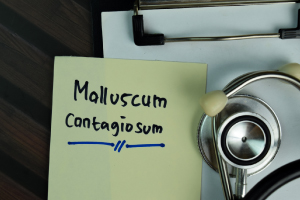

The mention of purine rich foods is always associated with nutrition. Purines are the natural compound which exists in several food products, and they are essential for the body. Despite that, overindulgence in purine foods could cause accumulation of uric acid leading to the above stated conditions like gout or uric acid stones in the kidney.
We will discuss purine-laden foods, low-purines, issues associated with high-purine die, and health concerns in general.
Understanding Purines
These are organic substances, in the body’s metabolic system, that form DNA, RNA as well as ATP required for cellular energy. They are found in many kinds of meat (organ meats – liver, kidneys), sea food such as anchovies lentils, beans as well as some vegetables like spinach and asparagus. Our body needs purines but we must take them in moderation so as not overloading the body.
Purine-Rich Foods
The foods with higher concentrations of purine include purine-rich ones. They can, however, make part of a healthy meal for one but care needs to be taken by people with gout and kidney problem who cannot handle it well. Here is the list of food stuff that could be included in a high-purine menu. Some common purine-rich foods are as follows:
1. Organ Meats
For instance, organ meats such as liver, kidneys and sweetbreads have a high amount of purines. Therefore, such meats are good but people with gout and hyperuricemia have to take it only occasionally.
2. Seafood
Purine-rich products include certain types of seafood, like anchovies, sardines, mussels or scallops, for example. Diets of people who are susceptible to these uric acid-related health issues must be limited by them.
3. Legumes
Lentils, chickpeas and beans are also good sources of protein and fibre but have moderate purine levels, too. Generally, though their purine richness, they often overbalance their nutrition value.
4. Vegetables
Moderate amounts of purines are also present in other types of vegetables such as spinach, asparagus, cauliflower and mushrooms. Nonetheless, they are viewed to be less hazardous to eat because they contain lesser purines than other food items.
Low Purine Foods
People should, therefore, choose to take less purine foods. Such foods result in lowered levels of purine therefore less chances of carcinogenesis. Some low-purine foods are as follows:
1. Dairy Products
Most dairy products including milk, yoghurt and cheese are typically purine poor. These foods are also good sources of calcium and other vital substances.
2. Eggs
Protein eggs have negligible purine content and provide many vitamins and mineral traces. They may work well on a low-purine diet.
3. Fruits
Most of them are low in purines, contain valuable nutrition and antioxidants. However, people on a low-purine diet should also consume fruits such as berries, apples, oranges and melons.
4. Grains
Such purine containing whole grains include rice, oats or quinoa which supply body carbs, fibre and other valuable nutrition essentials.
Are Purine-rich Foods Beneficial for Your Health?
If you are wondering whether purine-rich foods are good for you or not, then it’s important to know that they do offer benefits when consumed in moderation, such as:
1. Nutrient Source
The purpose-rich foods consist of proteins, vitamins and other essential nutrients vital for good health.
2. Energy Production
These are purines which play an important role in ATP synthesis that provide energy for cells.
3. Antioxidant Properties
Several plant-based purine-rich foods are known to supply the required antioxidants for protection against oxidative stress and prevention of chronic diseases.
4. Heart and Blood Vessel Health
Production of nitric oxide for healthy blood vessel structure and regulation of blood pressure is dependent on purines.
5. Cognitive Health Support
Adenosine or purine is implicated in cognition including remembering and learning.
Conclusion
Purines constitute ordinary components of our eating habits and provide necessary support to metabolic processes. Nevertheless, too much of the purine-rich food can create problems especially among people with gout, kidney issues or hyperuricemia.
Individuals could understand which foods are highly purinary and then choose lower options for a balanced diet. Consultation with a healthcare provider or dietician for customised advice depending on your specific requirements and medical conditions is always preferable.




